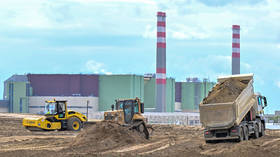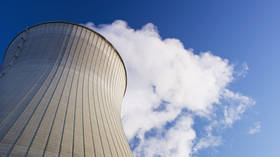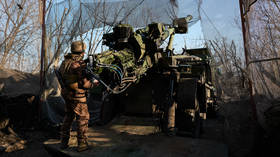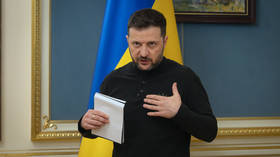Russia hands over nuclear fuel to Bangladesh
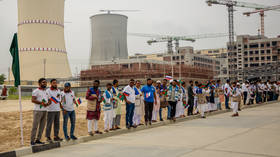
Russian nuclear energy major Rosatom has officially handed over uranium to the Bangladeshi authorities to fuel the country’s first nuclear power plant, which is being constructed by Russia in Ruppur, Pabna district in the western part of the country.
The first of two units of the 2,400 MW Rooppur Nuclear Power Plant is expected to be operational next year, providing much-needed energy to the emerging regional economic power. With the handing over of fresh nuclear fuel to the Bangladeshi authorities today, the country will become the 33rd nuclear fuel user in the world.
Bangladeshi Prime Minister Sheikh Hasina, Russian President Vladimir Putin, and the head of the International Atomic Energy Agency (IAEA), Rafael Grossi, addressed the historic ceremony virtually.
“Russia is not just building a station, we will provide assistance to our Bangladeshi partners throughout the entire life cycle of the nuclear project,” the Russian president said. This will include obligations for the long-term supply of reactor fuel, maintenance of the nuclear power plant, and management of spent nuclear material. Putin also explained that the Russian side will train highly qualified personnel for the nuclear industry of Bangladesh.
We are essentially creating not just a nuclear power plant, together with Bangladesh we are creating an entire nuclear industry – the peaceful atomic industry.
Hasina expressed her gratitude to Putin, as well as to Indian Prime Minister Narendra Modi. India is a partner in the project, and its companies are working on the construction of the station as contractors. In addition, Bangladeshi specialists are trained both in Russia and India.
The commissioning of the station is a big step for the economic development of the country, the Bangladeshi prime minister said. She also stressed the importance of Bangladesh and Russia signing an agreement that Russia will remove spent nuclear fuel.
The director general of Russian atomic energy major Rosatom, Aleksey Likhachev, attended the ceremony in person.
“This day marks a new stage in the development of Russian-Bangladeshi relations. After the delivery of nuclear fuel, Rooppur NPP becomes a nuclear facility, and the People’s Republic of Bangladesh gets the status of a country that possesses peaceful nuclear technologies,” Likhachev said.
“We’ve been waiting for this special moment for a long time. It is a celebration not only for the people of Pabna district but also for the entire nation. On October 5 we received the fuel delivery certificate, which itself speaks about our achievements as a nation,” architect Yeafesh Osman, the Bangladeshi minister of science and technology, said.
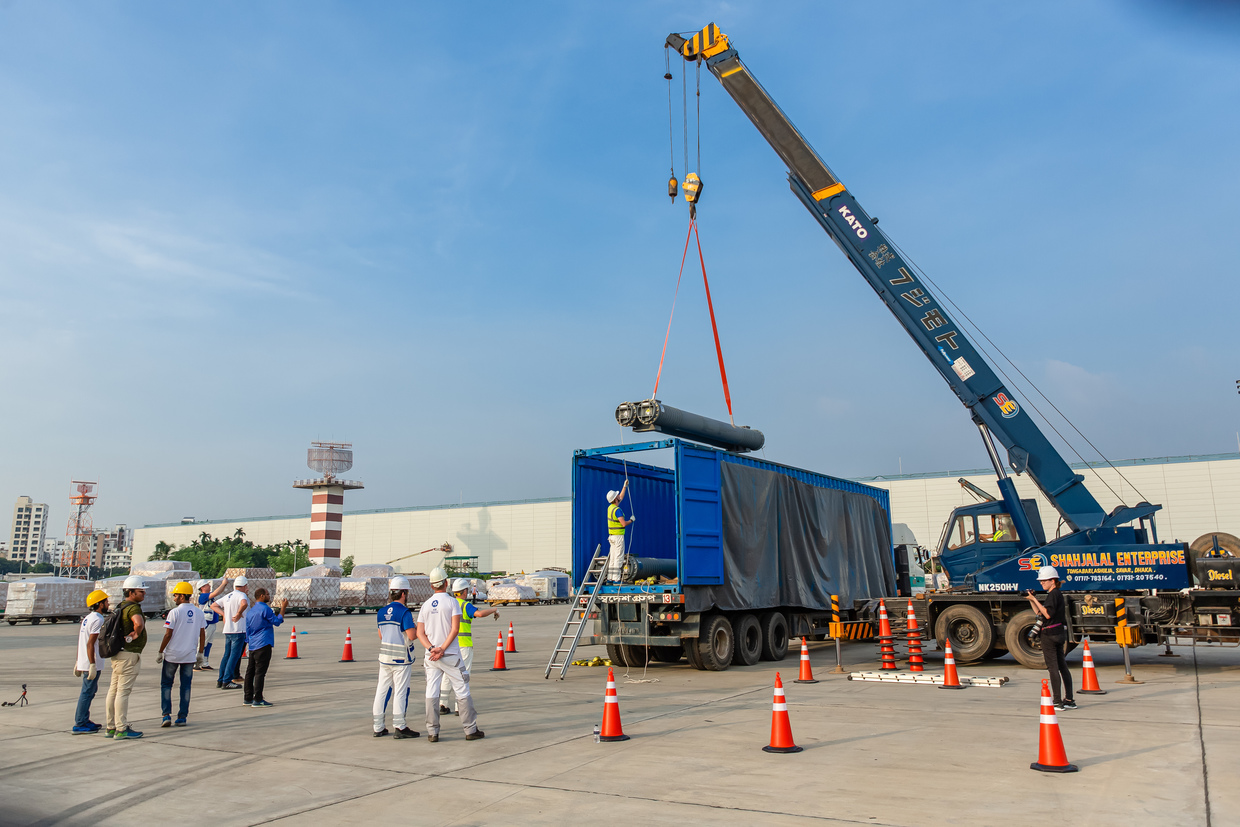
Aleksey Deriy, the director for the Rooppur NPP construction project of JSC ASE, told reporters that the event marks an important milestone for the project, as it shows that the site, the infrastructure, staff, and security are ready for the next big step – running the first unit of the plant, which is expected to be launched next year. He added that Bangladesh is now joining the “elite club of nations that use nuclear energy.”
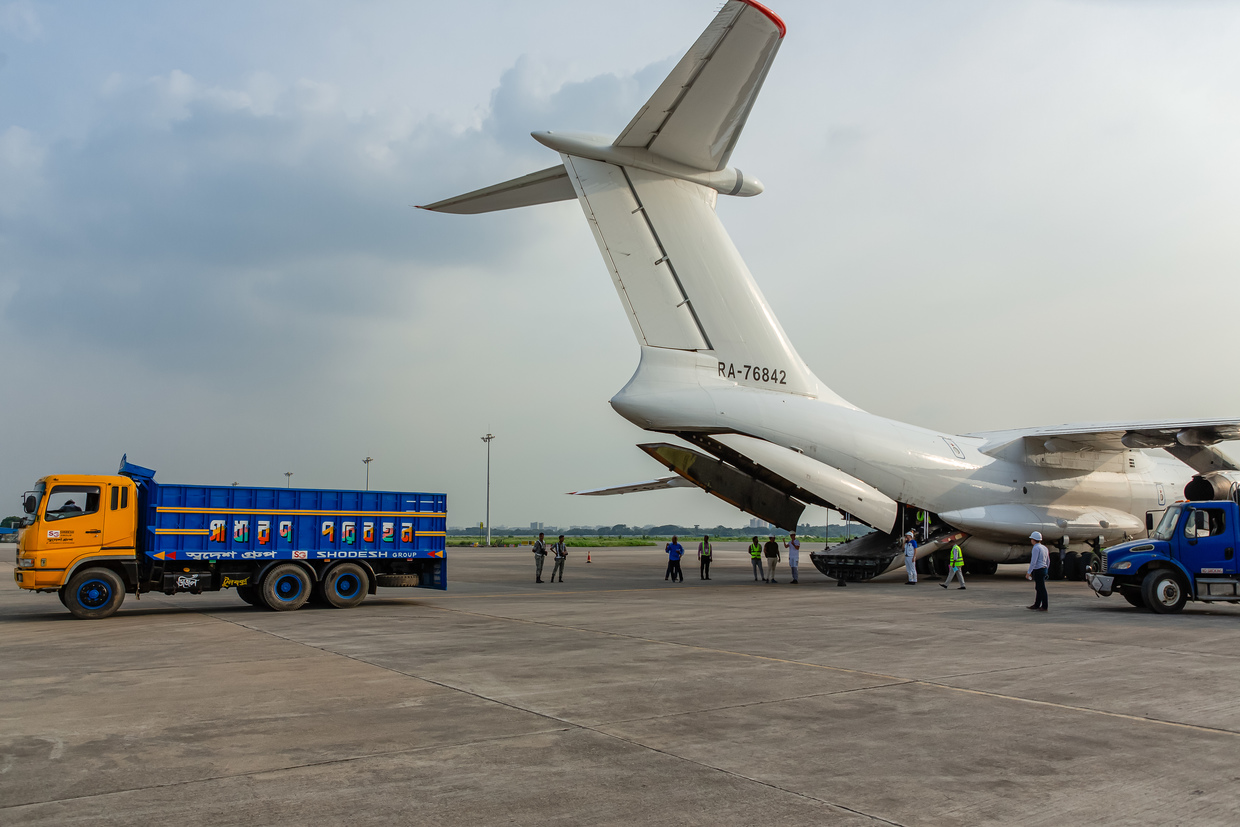
The first batch of uranium, the nuclear fuel of the first unit of Rooppur Nuclear Power Plant, arrived in Bangladesh last week, according to local media reports. The consignment of uranium arrived in Dhaka from Russia through a special air cargo and was moved to the plant by road under heavy security the next day. The nuclear fuel was brought to Hazrat Shahjalal International Airport in Dhaka by a special plane from a factory in Russia. The fuel was produced at the Novosibirsk Chemical Concentrates Plant in Russia, a subsidiary of Rosatom’s fuel manufacturing company, TVEL.
The RNPP, which is around 140km west of Dhaka, is Bangladesh’s biggest infrastructure project to date and a vital part of plans to move away from coal and other fossil fuels. The government launched the nuclear power program in 2009, and by 2016, significant progress was made in shaping the first nuclear power plant project.
Bangladesh signed an Intergovernmental Agreement with Russia in 2011. In the following years, the governments of Bangladesh and Russia signed several intergovernmental credit agreements worth around $12 billion for financing of the project.
The foundation stone for the Rooppur NPP was laid in October 2013 and the first concrete for the main construction phase was poured in November 2017. The Rooppur plant is being built according to Russian VVER (Water-cooled Water-moderated Power Reactor) AES-2006 design (VVER-1200, V-392M) and commissioning experience of Novovoronezh NPP.
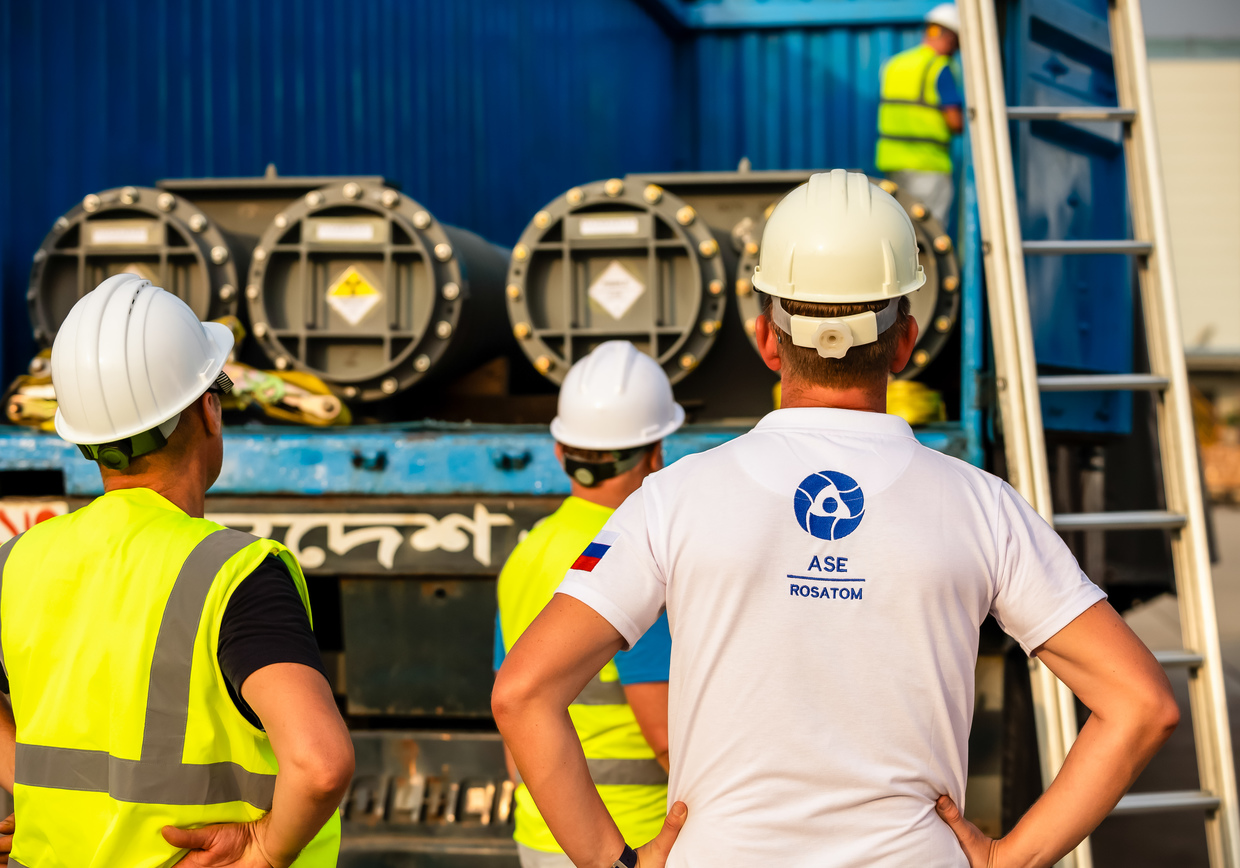
Officials said the project is being implemented according to schedule despite the complications caused by the Western sanctions on Russia.
“Over the past few years, we have faced significant pressure alongside our friends from Bangladesh. We have overcome the consequences of the pandemic, disruptions in global logistics, changes in the entire supply chain on the planet, and external political pressure. It doesn’t make our life easier, but it doesn’t stop the project either,” Likhachev said on the sidelines of the ceremony.
Bangladesh faced issues with paying several debt installments as key Russian banks were disconnected from SWIFT. In April, Nikkei reported that a solution was found, as the payments could be settled in Chinese yuan. An official of Bangladesh’s Ministry of Finance told the agency that repaying Moscow in yuan appeared to be the most viable option under the circumstances.
Payment has not been the only issue impacting the project. In February this year, the Bangladeshi government blocked the entry of 69 Russian ships carrying equipment for the plant. According to Dhaka, the ships violated Western sanctions, and the government requested that Moscow make sure that the ships carrying the equipment are not sanctioned, Business Standard reported.
Moscow responded by saying that the action was inconsistent with the “traditionally friendly bilateral relations” between the two countries and “may adversely affect the prospects for cooperation in various fields.” A ship which was blocked in December later unloaded at an Indian port. A plan was drawn up to transport the equipment by road to Bangladesh, increasing the time and cost of supplying the construction.
